- NEW: National Security Council spokesman defends U.N. Ambassador Susan Rice
- Rep. Peter King calls for Rice to resign, after she described the attack as arising from a protest
- She provided the best information available at the time, a spokeswoman says
- Ambassador Christopher Stevens and three others died in the September 11 attack
Washington (CNN) -- The U.S. intelligence community has revised its assessment of the deadly attack on the American consulate in Libya, saying it now believes it was a deliberate terrorist assault.
In an unusual statement on Friday, the Office of the Director of National Intelligence sought to explain how it has revised its view of the September 11 attack on the diplomatic post that killed Ambassador Christopher Stevens and three others.
The assessment moves away from the initial belief the Benghazi attack began spontaneously following a protest over an anti-Muslim film. The intelligence community now believes it was "a deliberate and organized terrorist assault carried out by extremists" affiliated or sympathetic with al Qaeda.
The statement represents the fullest accounting yet of the intelligence community's changed understanding of the attack, and suggests it is trying to distance itself from the political debate over whether the Obama administration is being fully forthcoming about its understanding of events.
The release of such information outlining an ongoing investigation is rare and underscores just how controversial the issue has become.
"In the immediate aftermath, there was information that led us to assess that the attack began spontaneously following protests earlier that day at our embassy in Cairo," according to the statement from Shawn Turner, director of public affairs for the national intelligence office.
The statement continues that the information was provided to the White House and Congress with the clear understanding it was preliminary and could change.
"We provided that initial assessment to executive branch officials and members of Congress, who used that information to discuss the attack publicly and provide updates as they became available. Throughout our investigation we continued to emphasize that information gathered was preliminary and evolving," the statement said.
But the statement makes it clear that the view has changed, although it does not specify over what period of time that occurred.
"As we learned more about the attack, we revised our initial assessment to reflect new information indicating that it was a deliberate and organized terrorist attack carried out by extremists," according to the statement.
Last week, the director of the National Counterterrorism Center, Matt Olsen, described the incident as a terror attack, but noted it was not "significantly planned."
His statement came days after U.N. Ambassador Susan Rice described the attack based more on what the intelligence community says is its initial assessment -- that it arose from a protest.
Rep. Peter King, chairman of the House Committee on Homeland Security, on Friday called for Rice to resign, characterizing her comments as "irresponsible" and a "failure of foreign policy message and leadership."
"I think we have to show that there is a price to be paid for such a gross misstatement of reality," he told CNN's Wolf Blitzer on "The Situation Room."
Prior to King's call, Rice's office released a statement defending what she said on Sunday talk shows five days after the attack.
"Ambassador Rice's comments were prefaced at every turn with a clear statement that an FBI investigation was under way that would provide the definitive accounting of the events that took place in Benghazi," spokeswoman Erin Pelton said in that statement.
"At every turn Ambassador Rice provided -- and said she was providing -- the best information and the best assessment that the administration had at the time, based on what was provided to Ambassador Rice and other senior U.S. officials by the U.S. intelligence community."
A spokesman for the National Security Council similarly defended Rice: "The president appreciates the work she does every day and he is looking forward to her continued work."
Everything Rice said was cleared and nothing was meant to mislead the American public, the spokesman said, following King's comments.
This week, Defense Secretary Leon Panetta said he believed the attack was "clearly" conducted by terrorists who planned it, and said that it "took a while" for there to be information to reach such a conclusion.
But on the same day, a senior U.S. official told CNN that within a day or so of the attack, the U.S. intelligence community began to gather information suggesting it was the work of extremists either affiliated with al Qaeda groups or inspired by them.
The timing of when this understanding overtook the initial assessment remains unclear.
"It remains unclear if any group or person exercised overall command and control of the attack, and if extremist group leaders directed their members to participate. However, we do assess that some of those involved were linked to groups affiliated with, or sympathetic to (al Qaeda)," according to the statement from Turner, at the national intelligence office.
"As more information becomes available our analysis will continue to evolve and we will obtain a more complete understanding of the circumstances surrounding the terrorist attack," it read.
Turner said the intelligence community will continue to assist the State Department and FBI in their investigation.
"For its part, the intelligence community will continue to follow the information about the tragic events in Benghazi wherever it leads."
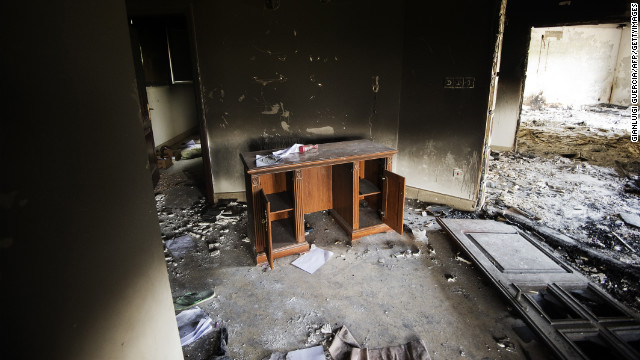
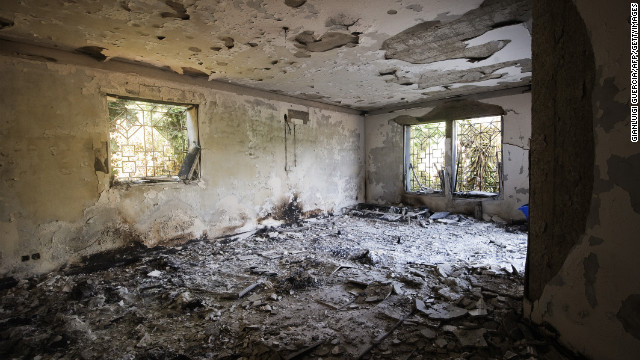
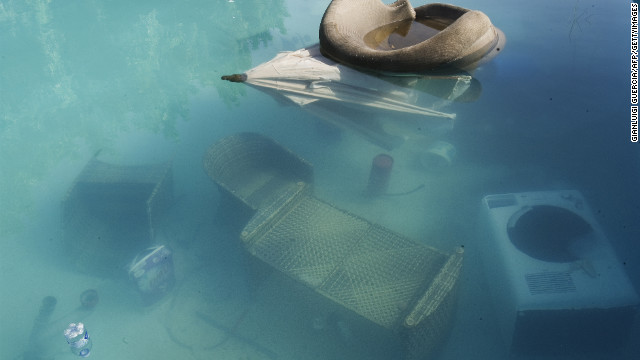
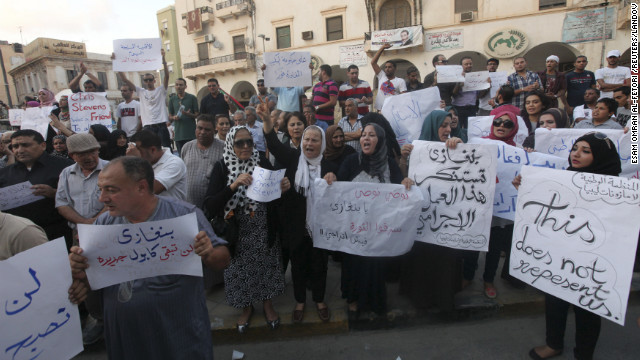
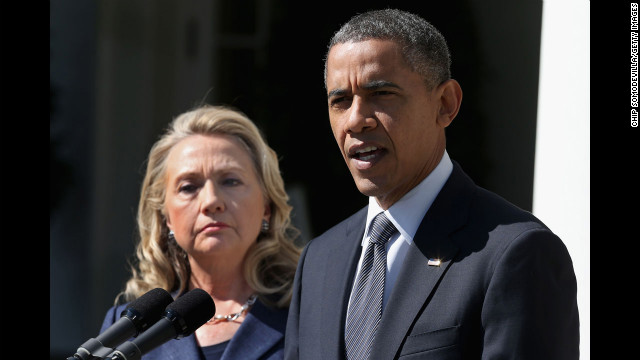
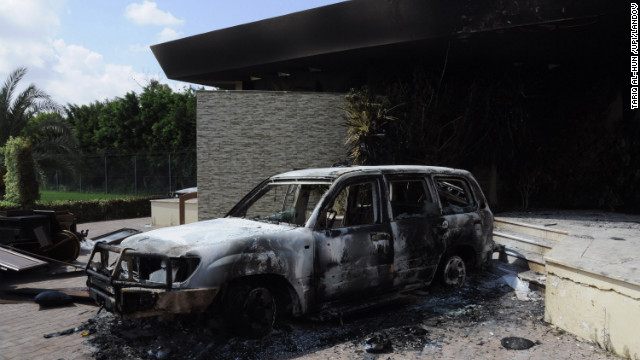
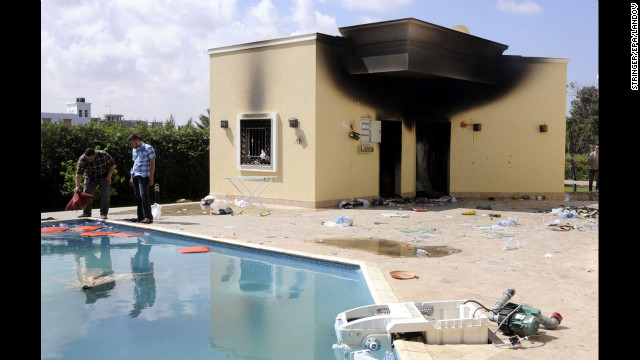
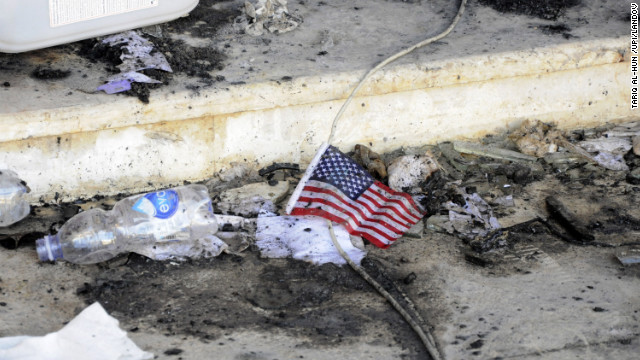
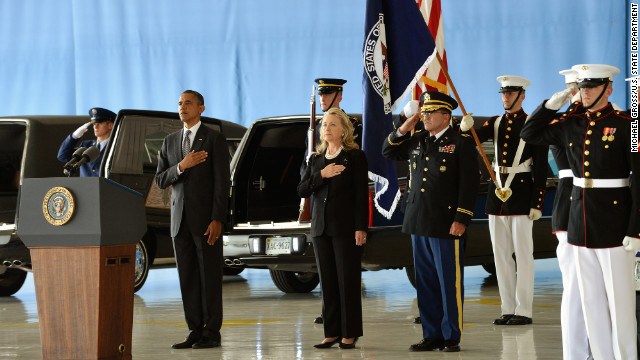
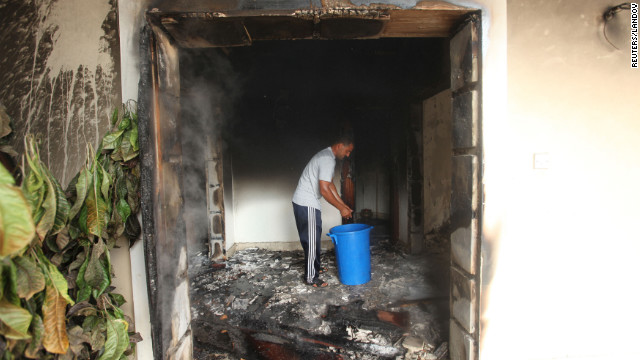
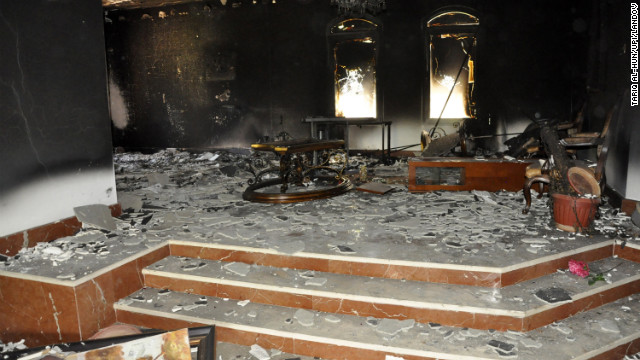
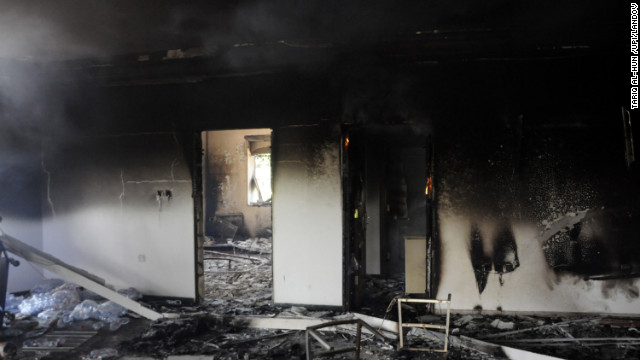
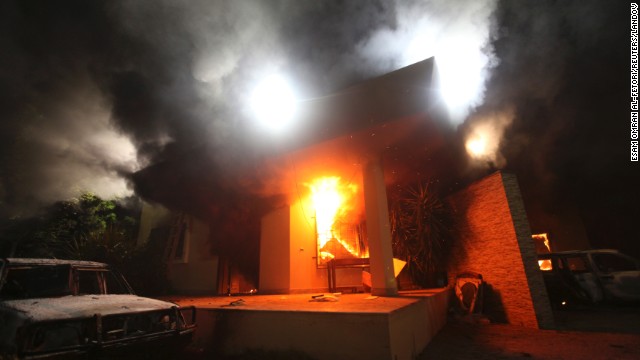
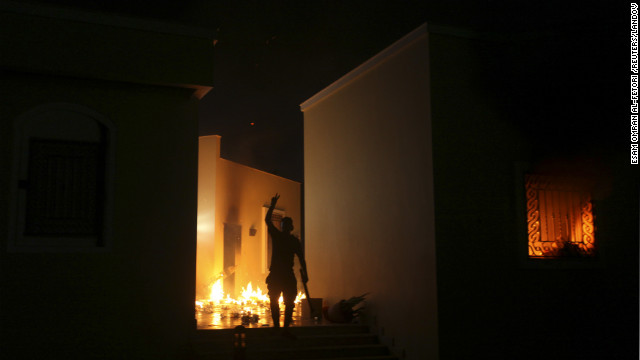
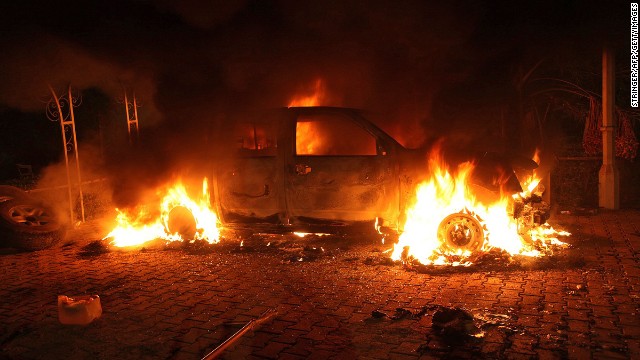
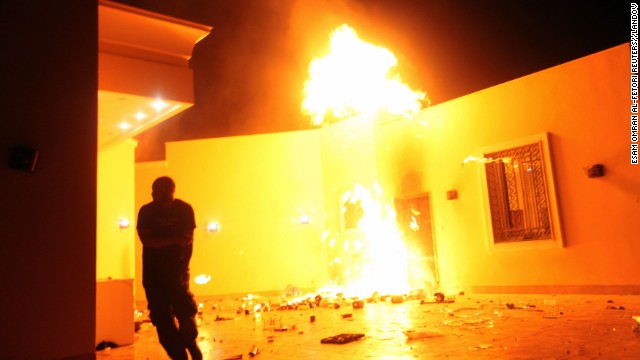
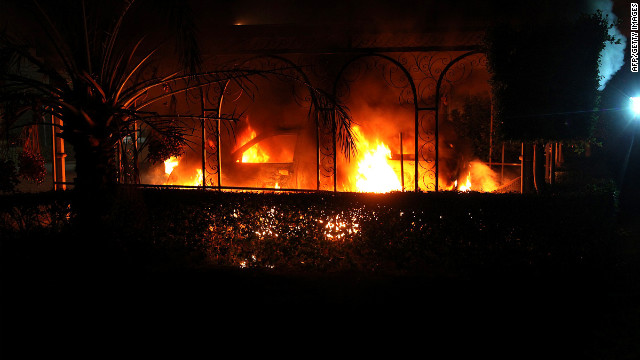
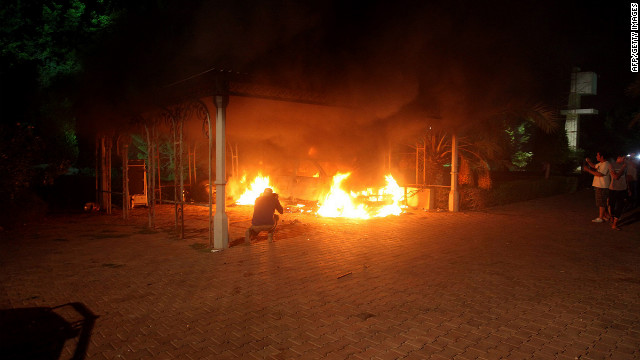
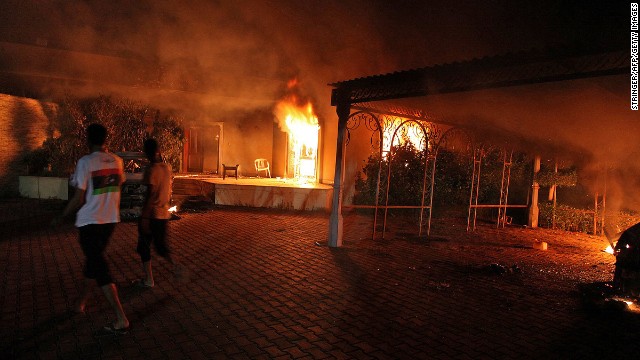
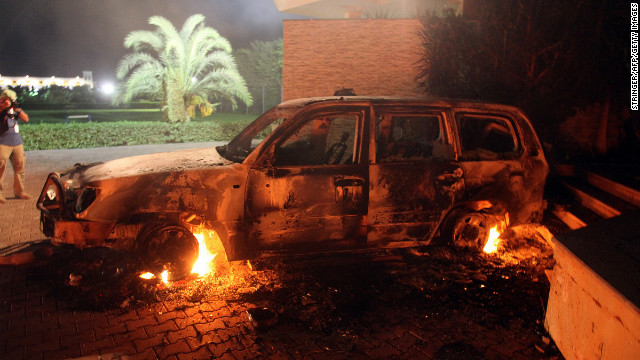
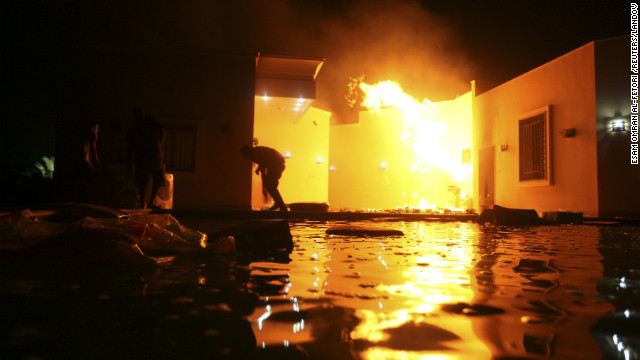





















No comments:
Post a Comment